Related Research Articles

Colonialism is a practice or policy of control by one people or power over other people or areas, often by establishing colonies and generally with the aim of economic dominance. In the process of colonisation, colonisers may impose their religion, language, economics, and other cultural practices. The foreign administrators rule the territory in pursuit of their interests, seeking to benefit from the colonised region's people and resources. It is associated with but distinct from imperialism.

George Hamilton-Gordon, 4th Earl of Aberdeen,, styled Lord Haddo from 1791 to 1801, was a British statesman, diplomat and landowner, successively a Tory, Conservative and Peelite politician and specialist in foreign affairs. He served as Prime Minister from 1852 until 1855 in a coalition between the Whigs and Peelites, with Radical and Irish support. The Aberdeen ministry was filled with powerful and talented politicians, whom Aberdeen was largely unable to control and direct. Despite his trying to avoid this happening, it took Britain into the Crimean War, and fell when its conduct became unpopular, after which Aberdeen retired from politics.

The United Kingdom of Great Britain and Ireland was a sovereign state that existed between 1801 and 1922. It was established by the Acts of Union 1800, which merged the Kingdom of Great Britain and the Kingdom of Ireland into a unified state. The establishment of the Irish Free State in 1922 led to the remainder later being renamed the United Kingdom of Great Britain and Northern Ireland in 1927.
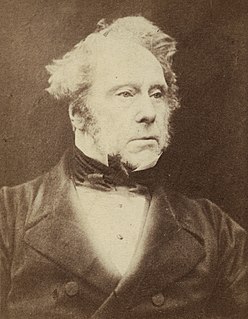
Henry John Temple, 3rd Viscount Palmerston, was a British statesman who was twice Prime Minister of the United Kingdom in the mid-19th century. Palmerston dominated British foreign policy during the period 1830 to 1865, when Britain stood at the height of its imperial power. He held office almost continuously from 1807 until his death in 1865. He began his parliamentary career as a Tory, defected to the Whigs in 1830, and became the first prime minister from the newly formed Liberal Party in 1859. He was highly popular with the British public. David Brown argues that "an important part of Palmerston's appeal lay in his dynamism and vigour".

John Russell, 1st Earl Russell,, known by his courtesy title Lord John Russell before 1861, was a British Whig and Liberal statesman who served as Prime Minister of the United Kingdom from 1846 to 1852 and again from 1865 to 1866.

The Entente Cordiale comprised a series of agreements signed on 8 April 1904 between the United Kingdom and the French Republic which saw a significant improvement in Anglo-French relations. Beyond the immediate concerns of colonial demarcation addressed by the agreement, the signing of the Entente Cordiale marked the end of almost a thousand years of intermittent conflict between the two states and their predecessors, and replaced the modus vivendi that had existed since the end of the Napoleonic Wars in 1815 with a more formal agreement. The Entente Cordiale represented the culmination of the policy of Théophile Delcassé, who believed that a Franco-British understanding would give France some security in Western Europe against any German system of alliances. Credit for the success of the negotiation of the Entente Cordiale belongs chiefly to Paul Cambon and to the British Foreign Secretary, Lord Lansdowne.

The French colonial empire comprised the overseas colonies, protectorates and mandate territories that came under French rule from the 16th century onward. A distinction is generally made between the "First French Colonial Empire", that existed until 1814, by which time most of it had been lost or sold, and the "Second French Colonial Empire", which began with the conquest of Algiers in 1830. At its apex between the two world wars, the second French colonial empire was one of the largest empires in history.
Decolonization or decolonisation is the undoing of colonialism, the latter being the process whereby a nation establishes and maintains its domination of foreign territories, often overseas territories. The concept particularly applies to the dismantlement, during the second half of the 20th century, of the colonial empires established prior to World War I throughout the world. Some scholars of decolonization focus especially on the movements in the colonies demanding independence, such as Creole nationalism.
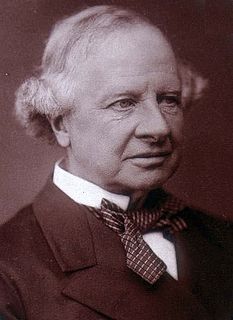
Granville George Leveson-Gower, 2nd Earl Granville,, styled Lord Leveson until 1846, was a British Liberal statesman and diplomat from the Leveson-Gower family. He is best remembered for his service as Secretary of State for Foreign Affairs.
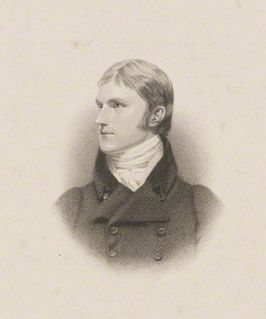
Stratford Canning, 1st Viscount Stratford de Redcliffe, was a British diplomat who became best known as the longtime British Ambassador to the Ottoman Empire. A cousin of George Canning, he served as Envoy Extraordinary and Minister-Plenipotentiary to the United States of America between 1820 and 1824 and held his first appointment as Ambassador to the Ottoman Empire between 1825 and 1828.

The decolonisation of Africa took place in the mid-to-late 1950s to 1975 during the Cold War, with radical regime changes on the continent as colonial governments made the transition to independent states. The process was often marred with violence, political turmoil, widespread unrest, and organised revolts in both northern and sub-Saharan countries including the Algerian War in French Algeria, the Angolan War of Independence in Portuguese Angola, the Congo Crisis in the Belgian Congo, the Mau Mau Uprising in British Kenya, the Zanzibar Revolution in the Sultanate of Zanzibar, and the Nigerian Civil War in the secessionist state of Biafra.

East Africa Protectorate was an area in the African Great Lakes occupying roughly the same terrain as present-day Kenya from the Indian Ocean inland to the border with Uganda in the west. Controlled by Britain in the late 19th century, it grew out of British commercial interests in the area in the 1880s and remained a protectorate until 1920 when it became the Colony of Kenya, save for an independent 16-kilometre-wide (10 mi) coastal strip that became the Kenya Protectorate.
The Latin phrase cīvis rōmānus sum is a phrase used in Cicero's In Verrem as a plea for the legal rights of a Roman citizen. When travelling across the Roman Empire, safety was said to be guaranteed to anyone who declared, "civis romanus sum".

Antony "Tony" Gerald Hopkins, FBA is a British historian specialising in the economic history of Africa, European colonialism, and globalisation. He is Emeritus Smuts Professor of Commonwealth History at the University of Cambridge, an Emeritus Fellow of Pembroke College, Cambridge and a fellow of the British Academy.
The history of external colonisation of Africa can be dated back from ancient, medieval, or modern history, depending on how the term colonisation is defined.
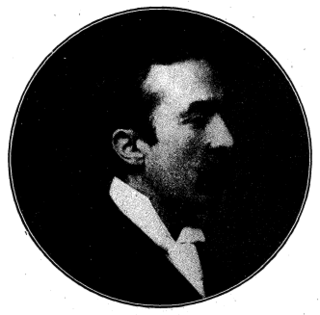
George Peabody Gooch was a British journalist, historian and Liberal Party politician. A follower of Lord Acton who was independently wealthy, he never held an academic position, but knew the work of historians of continental Europe.

The "Wind of Change" speech was an address made by British Prime Minister Harold Macmillan to the Parliament of South Africa on 3 February 1960 in Cape Town. He had spent a month in Africa in visiting a number of British colonies. The speech signalled clearly that the Conservative Party, which formed the British government, had no intention to block the independence to many of those territories.
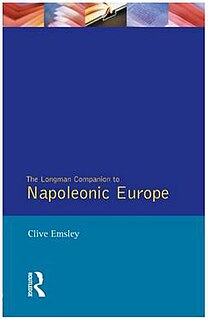
The Longman Companions to History is a book series, published by Longman and under the editorship of Chris Cook and John Stevenson, that provides a one volume overview of a major area of historical study. The first volumes were published in 1993. The most recent volumes was published in 2004.
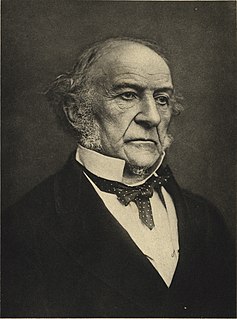
The foreign policy of William Ewart Gladstone focuses primarily on British foreign policy during the four premierships of William Ewart Gladstone. It also considers his positions as Chancellor of the Exchequer, and while leader of the Liberal opposition. He gave strong support to and usually followed the advice of his foreign ministers, Lord Clarendon, who served between 1868 and 1870, Lord Granville, who served between 1870 and 1874, and 1880 and 1885, and Lord Rosebery, who served in 1886 and between 1892 and 1894. Their policies generally sought peace as the highest foreign policy goal, and did not seek expansion of the British Empire in the way that Disraeli's did. His term saw the end of the Second Anglo-Afghan War in 1880, the First Boer War of 1880-1881 and outbreak of the war (1881-1899) against the Mahdi in Sudan.
References
- 1 2 Cover notes. Decolonisation: The Fall of the European Empires. Blackwell, Oxford, 1985. ISBN 0631139354
- ↑ Decolonisation: The Fall of the European Empires, 2nd Edition. Wiley. Retrieved 25 October 2015.
- 1 2 3 Simpson, Michael (31 March 2022). "Muriel Chamberlain obituary". the Guardian. Retrieved 31 March 2022.
- ↑ Chamberlain, M. E. (1983). Lord Aberdeen: A Political Biography. Addison-Wesley Educational Publishers Inc. p. 602. ISBN 978-0582504622.